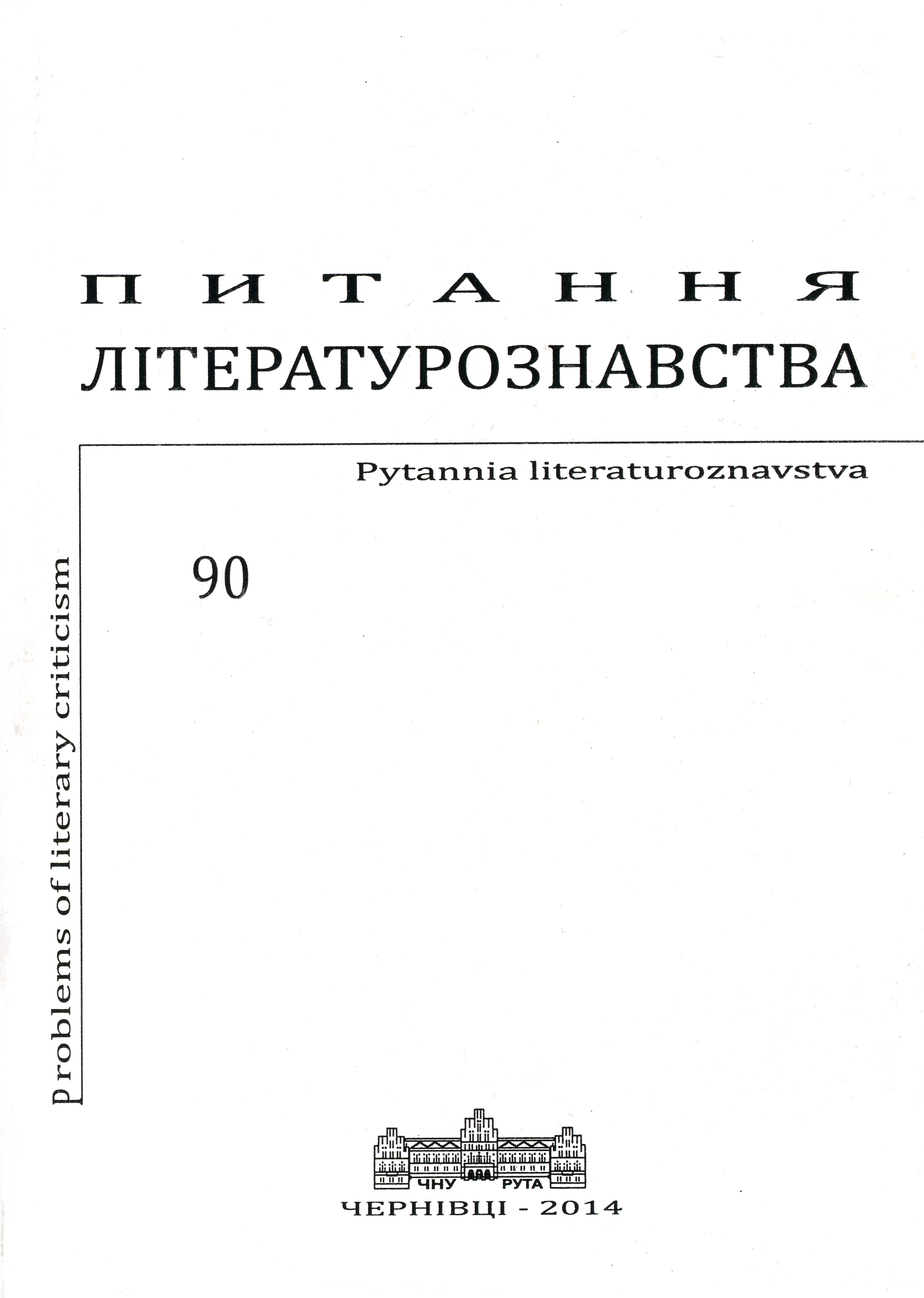Архетипні риси біографії Каспара Гаузера в казковій повісті Галини Пагутяк “Втеча звірів, або Новий бестіарій”
Archetypical Traits of Kaspar Hauser’s Biography in Halyna Pahutiak’s Fairy-Tale “The Escape of Animals, or The New Bestiary”
Author(s): Halyna BokshanSubject(s): Language and Literature Studies, Studies of Literature, Theory of Literature
Published by: Чернівецький національний університет імені Юрія Федьковича
Keywords: Halyna Pahutiak; literary biography; archetypical traits; mythopoetic image; mythological thinking; allusive connection; motif; intertext;
Summary/Abstract: The article analyzes the semantics of the archetype of „the noble savage” embodied in the image of Kaspar Hauser from the fairy-tale „The Escape of the Animals, or the New Bestiary” by Halyna Pahutiak. It looks at such features of this archetype as moral innocence, inborn kindness, harmonious relationships with nature, intentions to restore the lost order of the Universe. The article details the semantics of damaging influences of the civilization which prevent a person from realizing his or her life mission, expressed in a literary interpretation of „Kaspar Hauser syndrome”. It studies the specific character of creating the image of the same name in the novel by the German writer J. Wassermann, which is a sample of a literary biography. The paper considers the allusive connections of Kaspar Hauser image with the myth of the Golden Age, associated with the nostalgia for the lost Paradise; the mythopoetic image of the Unicorn; the semiotic system of the Old Testament. It deals with the peculiar character of realizing the motifs of loneliness, alienation, human sins, lost universal order, search for harmony. The article highlights the particular qualities of Halyna Pahutiak’s mythological thinking, which is realized through the interpretation of the world mythology images, symbols and sacred texts by actualizing the senses subordinate to the author’s intention.
Journal: Питання літературознавства
- Issue Year: 2014
- Issue No: 90
- Page Range: 62-71
- Page Count: 10
- Language: Ukrainian

